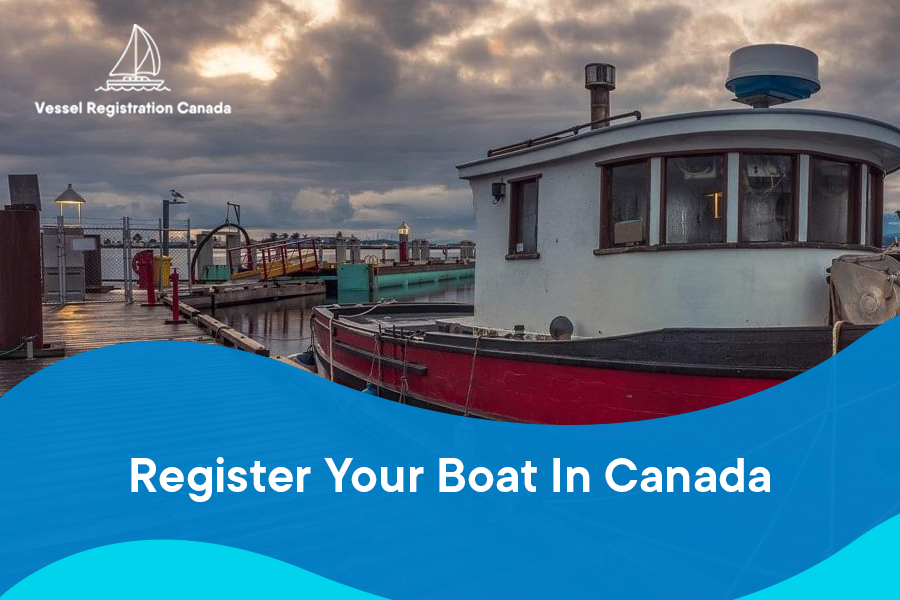If you're going to be spending more time on the water in Canada—whether it's for work or play—legally registering your boat is one thing you just can't afford to ignore. And while getting it done may seem like a bureaucratic chore at first blush, it's not that complicated once you know what you need to do.
This guide takes you step by step through registering a boat in Canada, the distinction between licensing and registration, and why it might be the better idea based on your requirements to go through Transport Canada boat registration.
First, Do You Even Need to Register Your Boat?
Not all boats in Canada need to be registered. So before diving into forms and paperwork, it's important to determine whether registration is even required in your case.
You must register vessel in Canada with Transport Canada if:
- The boat will be used for commercial or non-pleasure purposes (e.g., charters, workboats)
- You need legal proof of ownership and nationality
- You plan to sail internationally under the Canadian flag
- You wish to have sole rights to the use of a particular boat name
- For pleasure craft with engines 10 horsepower (7.5 kW) and over, you can register or get a pleasure craft licence. But for commercial boats, registration is required.
Advantages of Boat Registration in Canada
There are some reasons why boat owners register, even if it is not compulsory:
1. You Obtain an Official Boat Name
In contrast to a licence number, registration lets you christen your vessel and place that name on your hull. It puts a personal (and professional) touch, particularly if you intend to use your boat for tours or events.
2. Confirmation of Nationality
Registered boats bear the Canadian flag. That is important if you will be cruising beyond Canadian waters or berthing internationally since it demonstrates legal status and protection under Canadian law.
3. More Secure Proof of Ownership
Transport Canada boat registration offers a written record of ownership, as well as any liens or mortgages against the vessel. This can make the sale, purchase, or financing of the boat much simpler in the future.
What's the Difference Between Registration and Licensing?
This is where many boat owners become confused.
Pleasure Craft Licence Vessel Registration
For recreational boats only Required for commercial use
Valid for 10 years No expiry, unless ownership changes
Free to obtain Fee required
No naming rights You can choose and register a boat name
Less documentation More thorough proof of ownership
If you're just a casual boater, licensing will suffice. But if your boat is part of your business—or you need something more formal—registering your vessel in Canada is the way to go.
How to Register Your Boat in Canada
The process isn't hard, but it does take a couple of specific steps and some specific documents. You may do it yourself or use a professional service such as VesselRegistration.ca to make it all easier.
This is what you will need
1. Proof of Ownership
This may be a bill of sale, builder's statement, or transfer document. It needs to clearly indicate the buyer, seller, vessel information, and signatures.
2. Tonnage Measurements
Transport Canada vessel registration needs a tonnage measurement form to categorize your vessel. This is usually performed by a marine surveyor or by a verified template for small vessels.
3. Name Choosing
You will have to select three name choices for your vessel in the event that your first choice has already been taken. The name has to be distinctive in Canada.
4. Registry Application
This is the official documentation sent to Transport Canada. It contains details of ownership, tonnage, suggested name, and so on.
Fees to Anticipate
Currently, to register vessel in Canada from Transport Canada has a normal fee attached. It does not cover fees for professional surveys (in case necessary), express processing, or the services of a third party.
But considering the long-term benefits—official ownership proof, vessel name rights, and international recognition—it’s often worth the investment, especially for commercial operators or serious boaters.
Updating or Transferring Registration
Once your boat is registered, you’ll need to update the records if:
- You change your address or contact details
- You sell the boat
- You add or remove an owner
- You upgrade major components (like engine power)
Transfers or renewals may be handled in the same manner and typically involve little in the way of paperwork, provided all was done properly in the initial instance.
Is Registration Good or Bad for You?
Provided your boat is going to be used recreationally only and you do not need naming rights and international protection, a pleasure craft licence is the one you will probably be able to get by with.
However, when the boat is used in business trips, travels during a vacation, or investments, or when one just needs the peace of mind that a record is in existence, then it is certainly worth registering a boat in Canada.
Transport Canada vessel registration gets everything more official, enhances resale value, and keeps you in good graces with Transport Canada. And if you'd rather not deal with the paperwork and hassle, VesselRegistration.ca gets it done easily, quickly, and worry-free.
Previous post Next post